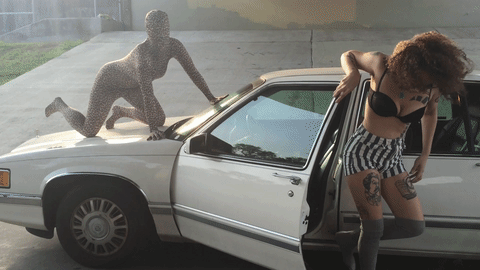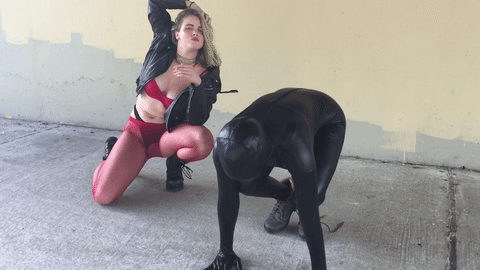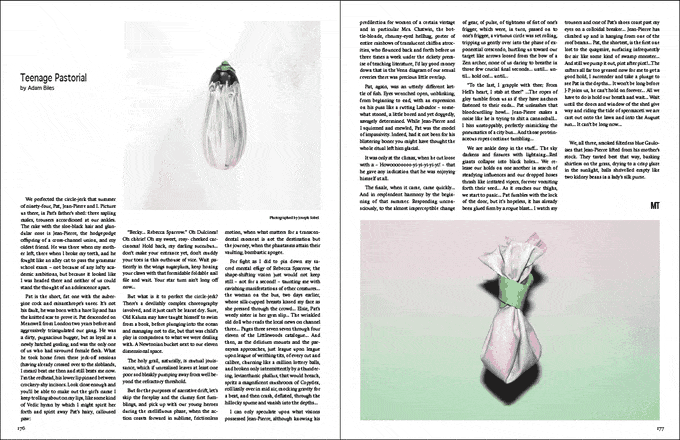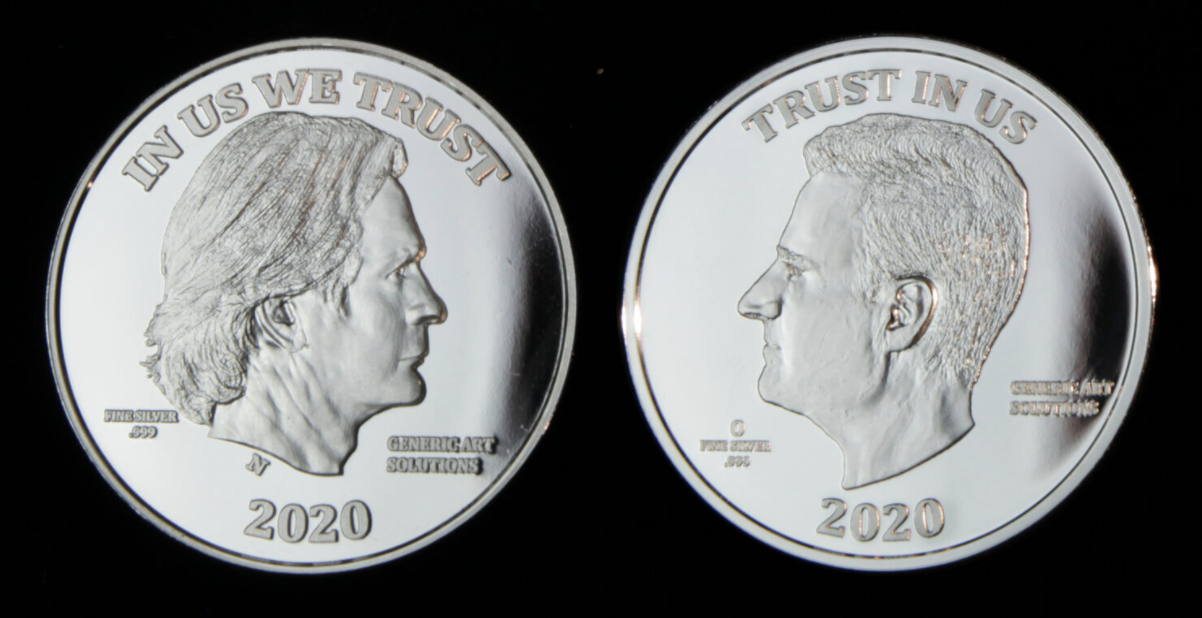Momma Tried Needs Your Help Going Cyborg

We have a sneak preview of the new issue of the New Orleans-based arts magazine, which draws inspiration from Playboy, Andy Warhol's Factory, and life after Katrina.
Momma Tried plans to make its first robotic gestures starting with its next issue. The New Orleans-based art magazine by Theo Eliezer and Micah Learned made its debut in print-only form, and issue 3 will also be print-only, but the sense that media companies banking on hard copies are whistling in the graveyard has prompted Momma Tried to factor technology into its future. Issue 3 will be best read using an augmented reality app that will help readers see pages not as they are but as they could be.
“When readers use the AR app to view the magazine through their smartphone’s camera, the live display of the magazine on the phone screen will show our pages turning into moving animations, still photographs in layout will becoming video, and pages of text will rearrange to reveal hidden messages,” Eliezer and Learned say in an email interview.
Momma Tried launched a Kickstarter campaign to help pay for the new issue and its technological enhancements, and the campaign has a week remaining.
The magazine itself is a technological update of Joseph Cornell’s boxes. Cornell arranged found objects in handmade boxes to create visual poetry through their juxtaposition. Momma Tried is a more metaphorical box and its statement is less a product of chance and selection, but the magazine—like other art/magazines before it—makes a provocative statement taken as a whole and in parts. The articles play with the authority that text carries to suggest that provocative ideas and personal notions are more conventional and widely accepted than they might be. The fashion shoot-like visuals similarly speak while aware of the marketing and art worlds they reference, though they more obviously undermine or interrogate their contexts. How do we process photos of men naked except for strategically opaque pantyhose playing with pink slime?
Momma Tried uses Playboy and men’s magazines as its launch point, which gives it a slightly naughty vibe. “We’re appreciative of the intellectual and aesthetic influence of publications like Playboy and Esquire during the golden age of print, but we’re also looking critically at the sociopolitical issues and materialism that were hallmarks of this media,” Eliezer and Learned write. “By making Momma Tried a nudie mag, our aim is to contribute to further normalizing the naked body by pairing it with art and literature, but our version is inclusive, non-heteronormative, and body-positive.”
In their promotion for the upcoming issue, Eliezer and Learned wrote, “Since Issue 2, Momma has become sentient and is now aware of her own mortality as a print object. In an effort to resist obsolescence and death, she's attempting to turn herself into a cyborg.” In today’s tech climate, “cyborg” sounds age-appropriate to Momma Tried’s inspiration, but that’s only part of the logic behind the word choice.
“In the making of this issue we have been inspired by 20th Century futurists such as Donna Haraway, who wrote about cyborgian identity as a way to move past the oppression of gender roles and patriarchy,” Eliezer and Learned write. “The term cyborg was coined in 1960, concurrent to some of our other core influences, and it refers to any entity that has restored or enhanced its functions through technology or artificial elements. With little exception, we are all cyborgs. We’re interested in embracing this fact and what it means to be mammals who are avoiding illness and death through the integration of technology. Our shared experiences and anxieties about mortality and the future are part of what is being embodied in the current concepts of Momma’s sentience and cyborg transition.”
The photo spreads in Momma Tried include some familiar faces in New Orleans’ underground arts scene. That’s the world Eliezer and Learned live in, so to some degree, it’s inevitable. “Working on this project has taken up so much of our time that the boundary between artistic practice and daily life has become non-existent,” they write. “We photograph our friends for the nude editorials, which are the cornerstones of each issue, and we publish artists and writers who are either already close to our hearts (such as Cree McCree), or are creative peers that we admire and develop friendships with through the process of approaching them to collaborate or publish their work.”
Practical and the aesthetic concerns merge here as they often do in Momma Tried. Working with friends is partly a way to see friends, but their presence gives the magazine a resonance beyond the moment and the questions it asks about possible futures.
“When we began the project, we knew that we wanted to create an archive of our community, so this blurred line began intentionally and snowballed to where it is today,” Eliezer and Learned write. “The inspiration to document our friends came both from a fascination with the legacy of the Factory and all of the iconic people that were part of Warhol’s orbit, as well as a personal sense of sentimentality and impermanence post-Katrina.”
All of the images are previews from issue 3 or behind the scenes photos. Click on the images to see them in a viewer.









